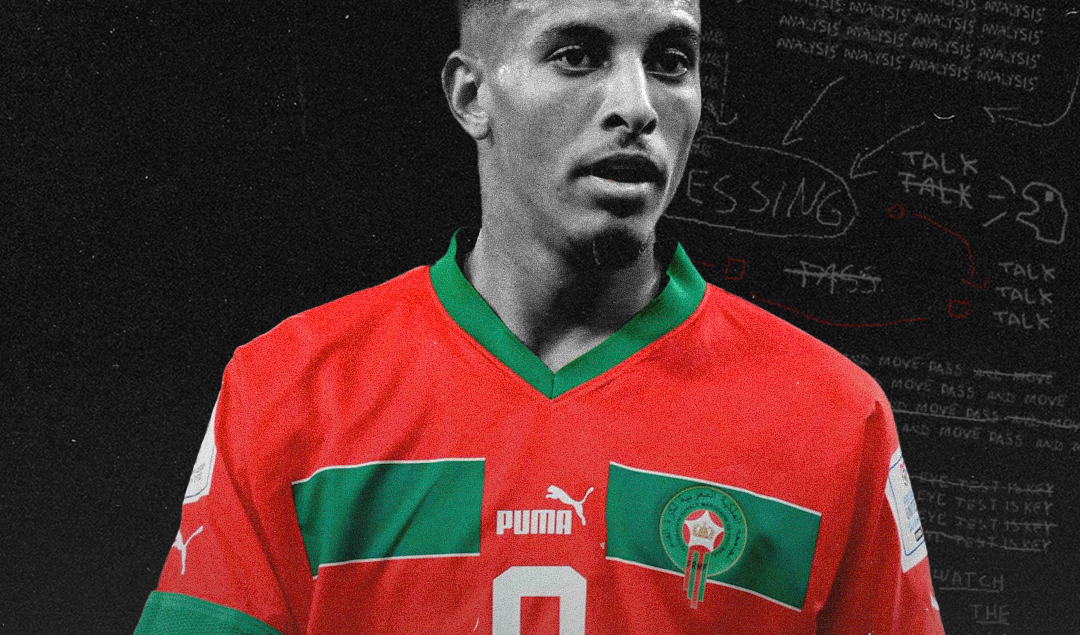Why Morocco’s Atlas Lions Were a Roaring Success in Qatar
Morocco, the FIFA World Cup wildcards, finished fourth at Qatar 2022 but kept on making history with their eye-pleasing performances. Walid Regragui, who was only installed as head coach 100 days before the winter tournament kicked off, was a gamble that paid dividends for the ambitious Royal Moroccan Football Federation (FMRF).
The Atlas Lions raced through their group games with the meanest defence. They kept clean sheets against European heavyweights Croatia and Belgium before conceding an own goal in their victory over Canada, which propelled them to finish group winners. For those who were unaware of FMRF’s long-term plans, which were instigated over a decade ago, Morocco were globally viewed as the underdogs when they tackled slick Spain in the last 16.
Regragui masterminded a scoreless draw and a penalty shootout success over the Spanish. That win was an historic day for Morocco, for Africa, for Arabs and for Muslims. The Atlas Lions had recorded their first-ever World Cup finals knockout stage win. With solid defending and intuitive counter-attacking, Morocco were more than a match for their next opponents — polished Portugal.
A slender 1-0 triumph left Cristiano Ronaldo and some of his team-mates in tears. Yet in Morocco there were tears of joy as they announced themselves on the prestigious stage as the first African team to ever reach the World Cup semi-finals. Youssef En-Nesyri’s spectacular header was the nation’s first-ever knockout stage strike.
France proved a hurdle too far, as the defending champions were clinical with a 2-0 win. Courageous Croatia delivered a bitter blow for the North Africans, edging them 2-1 in the 3rd/4th-place play-off. Morocco had also made an impact at the 1986 World Cup finals, when coached by Brazilian Jose Faria. Despite being pitted in a group to face England, Poland and Portugal, they finished top to make history as the first African team to advance to reach the last 16. A 1-0 reversal to West Germany ended their dreams.
Fast forward 36 years and the audacity of the FMRF, who surprisingly sacked Bosnian Vahid Halilhodzic in August before bringing in French-born Regragui, proudly put Morocco back on the world map. Regragui, who made 45 international appearances, arrived with an impressive CV that included league titles in Morocco and Qatar.
He was dealt a severe blow when attacking midfielder Amine Harit endured a knee injury just before the tournament. Yet the head coach, renowned for being a hard-tackling defender, ensured that his back line was solid. Anchored by skipper Romain Saiss and Spanish-born Achraf Hakimi ahead of the safe pair of hands of keeper Yassine Bounou, Morocco were prepared for games.
However, their progress was hampered by a set of injuries to key players following their victory over Portugal, which arguably accounts for why they tasted back-to-back defeats to France and Croatia respectively — the 2018 World Cup finalists.
According to top bookmaker and one of the best online casinos in UK, LeoVegas, Morocco were a generous 200/1 shot at the start of Qatar to win the tournament. And yet, although many considered Morocco an underdog before a ball was kicked, it was not an unexpected run to the last four for those in the know. The FMRF overhauled the nation’s football structure in 2009, thanks to the backing of King Mohammed VI.
The Mohamed VI Football Academy, just outside Rabat, has helped develop current international stars and unearth eligible young talent across Europe. The results have been impressive, and over half of Morocco’s squad at Qatar 2022 were born outside of the country they represent.
The FMRF developed the sport in schools and clubs as well as created a national league structure. By heavily investing in women’s football, Morocco is the only nation to boost two professional tiers. It is no coincidence that Moroccan clubs are the holders of the men’s and women’s African Champions League titles as well the men’s Confederations Cup — Africa’s Europa League.
And entering Qatar 2022 ranked just outside the world’s top 20, the FMRF were not surprised to see the Morocco defence blank free-scoring superstars Belgium’s Kevin De Bruyne, Croatia’s Luka Modric and Portugal’s Cristiano Ronaldo. Morocco will already be leaving Qatar in their rearview mirror to focus on the 2026 World Cup finals that will be co-hosted by Canada, Mexico and the United States.
With FIFA having announced an increase from 32 teams to 48 nations in four years, as well as a new format, the North Africans will be even more fearless even though such sides as Italy, Norway and Romania will be expected to return to the sport’s showpiece tournament.
Morocco have never feared European teams, and as African top dogs they only have to be ready for the silky skills of the South Americans in 2026 if they want to navigate themselves back into the history books by reaching the final.
